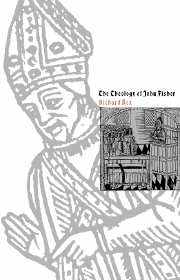Book contents
- Frontmatter
- Contents
- Acknowledgments
- List of abbreviations
- Introduction
- 1 Humanism and scholasticism in late fifteenth – century Cambridge
- 2 The preaching bishop
- 3 Fisher and the Christian humanists, 1500–1520
- 4 The Magdalene controversy
- 5 Fisher and the Catholic campaign against Luther
- 6 Authority
- 7 Faith, grace and justification
- 8 The eucharist
- 9 The inspiration and translation of scripture
- 10 The controversy over Henry VIII's first marriage
- 11 Conclusion
- Appendix John Fisher's library
- Notes
- Bibliography
- Index
- Frontmatter
- Contents
- Acknowledgments
- List of abbreviations
- Introduction
- 1 Humanism and scholasticism in late fifteenth – century Cambridge
- 2 The preaching bishop
- 3 Fisher and the Christian humanists, 1500–1520
- 4 The Magdalene controversy
- 5 Fisher and the Catholic campaign against Luther
- 6 Authority
- 7 Faith, grace and justification
- 8 The eucharist
- 9 The inspiration and translation of scripture
- 10 The controversy over Henry VIII's first marriage
- 11 Conclusion
- Appendix John Fisher's library
- Notes
- Bibliography
- Index
Summary
The conclusion to a study of this nature is inevitably an attempt to draw together the threads, to spell out ideas which may have become obscured by the weight of the argument. We can best begin by recalling that this study has been intended as a contribution to three discussions. It is primarily an effort to understand the mind of John Fisher himself, and I shall return to this a little later. But the study of Fisher's writings has more general implications, firstly for historians of the English Reformation, and secondly for historians of the Counter-Reformation, the Catholic response to the challenge of Protestantism. For England, its importance lies in the evidence that Fisher's writings provide about the intellectual vitality of the Church of England on the eve of the Reformation. In this regard, it can be seen as part of that wider reassessment of the English Reformation which is often assimilated to the movement of ‘revisionism’. Over the last twenty years, a succession of studies has revised our ideas about the late medieval Church. Its bishops have emerged as an altogether more impressive group than that so unsympathetically portrayed by John Foxe. Its popular appeal has been demonstrated beyond all possible doubt. Doubt has been cast instead on the significance of Lollardy and ‘anti-clericalism’ as symptoms of popular dissatisfaction with the established religion – doubt which remains undispersed even by recent trenchant restatements of the Foxean tradition.
- Type
- Chapter
- Information
- The Theology of John Fisher , pp. 184 - 191Publisher: Cambridge University PressPrint publication year: 1991



